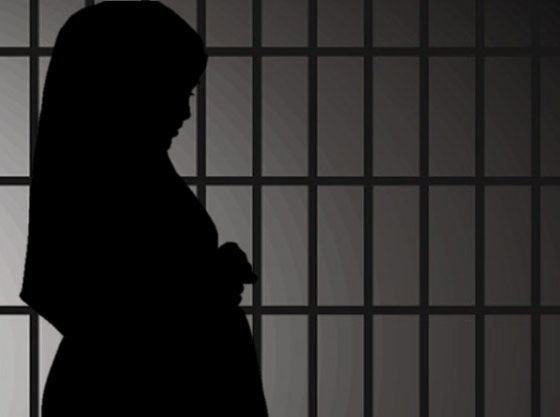The Office of the United Nations High Commissioner for Human Rights (OHCHR) on Tuesday said 600 women with young children were being held in detention in Turkey as of December 2017, calling on Turkey to end the practice of detaining pregnant and postpartum women.
In a 28-page report issued on Tuesday the OHCHR noted the following points concerning the detention, arrest and torture of pregnant women and children in Turkey in 2017:
“OHCHR estimates that approximately 600 women with young children were being held in detention in Turkey as of December 2017, including about 100 women who were pregnant or had just given birth.
“OHCHR documented at least 50 cases of women who had given birth just prior to or just after being detained or arrested. OHCHR received a report concerning a woman who was sexually assaulted by a police officer during arrest. Moreover, NGOs brought to the attention of OHCHR at least six cases of women who were detained while they were visiting their spouses in prison. They were either detained together with their children or violently separated from them.
“OHCHR has received reports of medical doctors and nurses fighting to prevent the police from handcuffing women in hospitals during or immediately after giving birth. It received a report concerning the detention of a woman who was shackled by her legs immediately after her miscarriage. OHCHR also collected evidence of a woman who gave birth by caesarean section and was arrested hours later at high risk to her and baby’s health.
“OHCHR received credible reports that babies were held in inadequate conditions with their mothers, a situation which may constitute ill-treatment. A relative of a woman imprisoned in South-East Turkey told OHCHR: ‘My daughter has been jailed for a year on a made-up charge of support to terrorism. With her is her 13 month-old infant who has anaemia and a lung disease that requires him to spend a lot of time in fresh air, which is impossible in prison.’ In another case, the mother of a prematurely born baby was removed from hospital after giving birth and taken to a prison 660 kilometres away, despite medical reports that the health of her baby, who could not be moved from the hospital incubator, was at risk unless breastfed by the mother.
“Mothers and children exposed to such practices face serious risks of health complications, stunting and even death. Their situation may amount to torture, cruel, inhuman or degrading treatment. Due to stress, many women report being mentally unwell and unable to breastfeed or to look after their children who are imprisoned with them. OHCHR recalls that, according to the Bangkok Rules, the State should ensure that children held with their imprisoned mothers are never treated as prisoners, and that the environment in which children are detained is as close as possible to conditions outside prisons. A comprehensive individual assessment for each child should be made considering the best interests of the child, and non-custodial measures should be preferred for pregnant women and those with dependent children. ”
In the recommendation section of the report the OHCHR called on Turkey to “End the practice of detaining pregnant and postpartum women, and consider using non-custodial measures for sentenced pregnant women and those with young children.”

